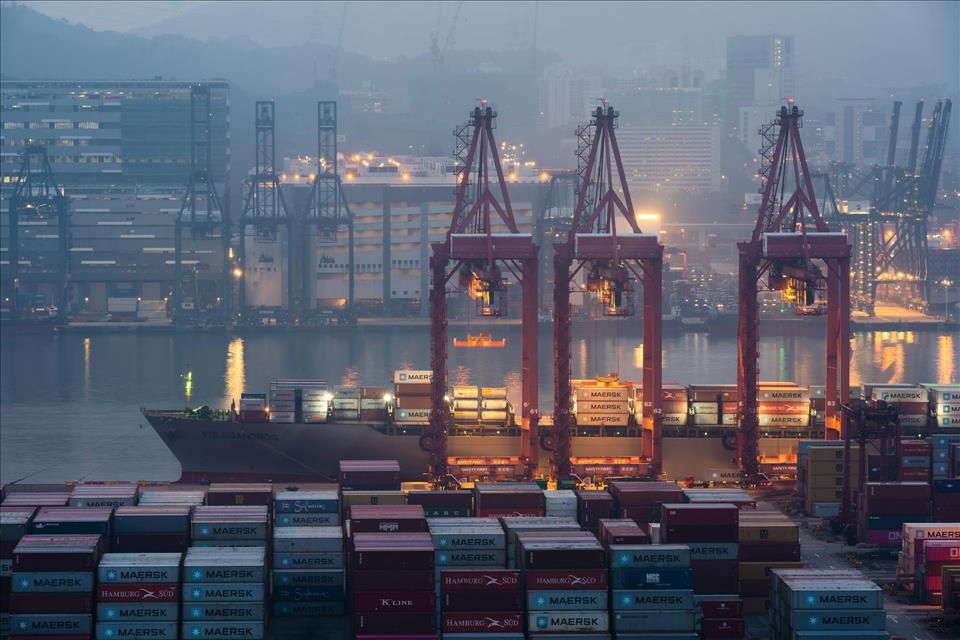
Risky Business: How Small Firms Can Be Caught In The Trade Sanctions Crossfire
A Sydney couple is charged for unwittingly violating United Nations nuclear sanctions against Iran.
A New Zealand aerospace company falls foul of UN restrictions when one of its products appears at a North Korean air show.
These real world examples demonstrate the pitfalls of doing business in a volatile global trade environment fuelled by geopolitical rivalries, fragmented supply chains and weaponised economic policy.
Trade sanctions have become a key feature of all this, and they often leave small firms caught in the crossfire.
Our research examines how sanctions operate in practice, the loopholes that weaken them, and the burden placed on smaller firms that lack the compliance capacity of multinationals.
We examined how sanctions affect day-to-day business operations, why targeted economies continue to function, how firms circumvent restrictions, and what this means for enforcement.
The findings reveal the need for strong oversight combined with flexibility that means legitimate small businesses are not unfairly penalised.
More sanctions mean more loopholesSanctions now frequently target Russia, Iran, North Korea and Syria, restricting access to oil, technology and finance. Yet they often contain legal grey areas that blunt their intended effects.
When Australia banned direct imports of Russian oil in 2022, for example, fuel refined from Russian crude continued arriving through intermediary countries. Once it has been“substantially transformed” in India or China, crude becomes a legally different product, even though revenue still flows to Russia.
This is not smuggling. It is a structural gap in sanctions design.
Supply chains add further confusion. A product banned in Australia may legally pass through a state with lighter restrictions, while US sanctions apply internationally and can penalise businesses far beyond American borders.
For example, one Australian logistics company received a US$6 million fine because shipments processed through the United Sstates financial system were linked to Iran, Syria and North Korea.
Compliance costs hurt small businessesLarge corporations have legal teams dedicated to sanctions. Small and medium enterprises do not and must interpret constantly shifting rules with limited staff. This makes them especially vulnerable to inadvertent breaches or manipulation by intermediaries.
In 2009 and 2010, a Sydney couple became the first Australians charged with violating UN sanctions after diverting 90 tonnes of nickel alloy material usable in nuclear facilities to Iran via Dubai.
Prosecutors alleged they misdeclared the end user, whether intentionally or through poor due diligence. The case illustrates how even modest exporters can become entangled in global security issues.
Similarly, New Zealand company Pacific Aerospace faced penalties after one of its aircraft appeared at a North Korean air show, in breach of strict UN restrictions.
The company pleaded guilty to indirectly exporting aircraft parts, underscoring how smaller firms can violate sanctions without realising the implications until regulators intervene.
How businesses circumvent sanctionsWhen companies intentionally bypass sanctions, they often rely on long-established methods common to illicit trade:
Rerouting through third countries: intermediaries in the United Arab Emirates, Turkey or Central Asia frequently trans-ship goods to Russia or Iran. The practice became so common that New Zealand explicitly tightened its ban on exports to Russia“via third countries”.
Shell companies and falsified paperwork: front companies and forged end-user certificates can disguise the true destination of shipments. A notable case involved German firm Aiotec, which secretly diverted, piece by piece, a decommissioned Australian industrial plant to Iran before US authorities uncovered the scheme.
Hard-to-trace financial transactions: cryptocurrencies, digital assets and barter arrangements are increasingly used to bypass the traditional financial systems monitored by regulators. Australian Senate inquiries have highlighted how these methods can appeal to small firms seeking less scrutiny and lower costs.
Such practices also weaken the political impact of sanctions and demonstrate a consistent economic truth: where there is demand, supply channels (legal or not) will emerge.
Consequently, many sanctioned economies adapt quickly. Russia has redirected trade to friendly nations, developed a shadow tanker fleet to transport oil and relied on parallel imports to replace banned Western goods.
Iran and North Korea, accustomed to decades of sanctions, maintain economic activity through extensive illegal and semi-legal channels.
Enforcement versus economic survivalRegulators face a difficult balancing act: ensuring strong enforcement while not crushing legitimate business activity.
Most small business owners are not geopolitical actors. They are trying to survive, employ staff and honour contracts amid shifting and often confusing rules. Many breaches occur through confusion rather than malice.
But policymakers must still deter those intentionally exploiting loopholes. This requires stronger but smarter enforcement, clearer guidance, timely regulatory updates and better industry education.
Closing known loopholes such as third-country re-exports and crypto-based transactions, must be combined with reforms that acknowledge real-world commercial pressures. To improve compliance while still supporting small businesses, governments should:
. provide clearer, accessible guidance tailored to small and medium enterprises
. harmonise sanctions across jurisdictions to reduce contradictions
. invest in targeted enforcement aimed at deliberate evasion
. and design sanctions with nuance so compliant firms are not forced out of markets.
Sanctions will continue to shape diplomacy and economic strategy. But their credibility depends on recognising the realities faced by small businesses that form the backbone of global commerce.

Legal Disclaimer:
MENAFN provides the
information “as is” without warranty of any kind. We do not accept
any responsibility or liability for the accuracy, content, images,
videos, licenses, completeness, legality, or reliability of the information
contained in this article. If you have any complaints or copyright
issues related to this article, kindly contact the provider above.


















Comments
No comment